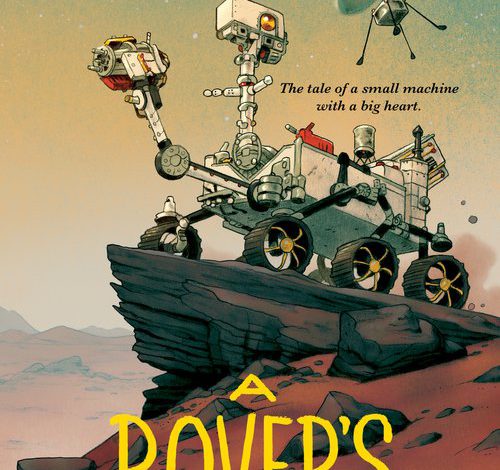Told in five parts and written from the perspective of a Mars’ Rover intermixed with letters from Sophie, A Rover’s Story by Jasmine Warga targets middle grade readers who are fascinated by space, earth science, and computer coding. Inspired by NASA’s real Mars’ Rover, Warga creates Resilience. Under the influence of Warga’s pen and through anthropomorphism, Resilience learns important lessons about what it might mean to be human. Res develops relationships with two NASA scientists, Rania and Xander who work in California’s Jet Propulsion Laboratory and with a community of machines, namely Journey, Fly, and Guardian.
Built for observation, Resilience awakens to knowledge. Although not in his programming, Res tries to understand the human feelings of want, trust, and being worthy. He recognizes that Rania, whom he calls a hazmat for the suit she wears in the lab, has invested several years of her life into creating him and writing precise and elegant code with exact calculations for him so that his mission is successful. As Res forms these attachments, Journey warns him against human feelings. “They make humans make poor decisions. . . . and because of their attachments and their feelings, they do things that are dangerous. We are built to avoid the problems of humans. We are built to make good decisions” (44).
However, in Journey’s words, Res is a strange rover who wants to come back, so she has to remind Res again and again that “it is not in our programming to make unfounded guesses based on scenarios where we do not yet have adequate data. . . . Stop your human emotion foolishness and make smart, calculated decisions. That way you will avoid dust storms and therefore avoid your demise” (68).
Determined to live up to his name, Resilience has two main objectives for his Mars mission: to collect rock samples of significant interest and to bring back online a previous rover that was stranded on the planet. In the course of his mission, Res teaches readers how, like robots, humans also have information that we don’t fully process, that understanding is different than knowing, that answering in not the same as knowing, and that sometimes we don’t know what we’re looking for until we’ve found it.
With A Rover’s Story, Warga inspires all readers to push our imaginations and continue to explore and expand the parameters of possibility.
- Posted by Donna

